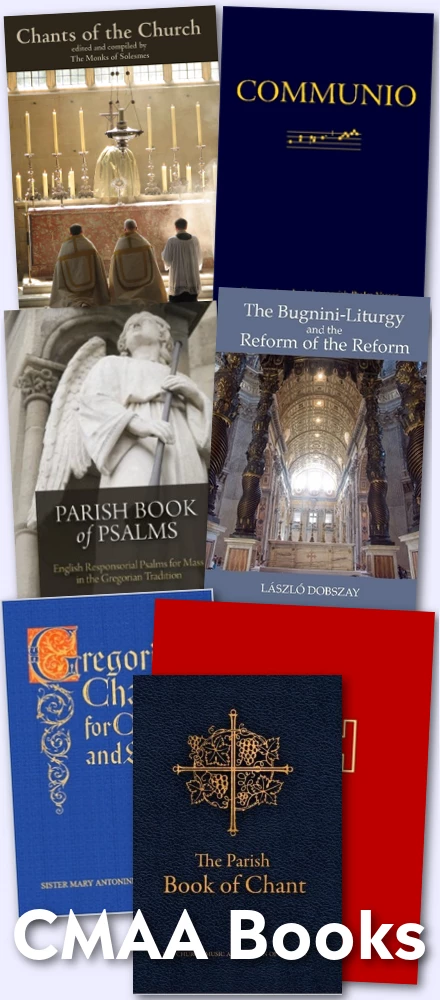O Crux, splendidior cunctis astris, mundo celebris, hominibus multum amabilis, sanctior universis: quae sola fuisti digna portare talentum mundi: dulce lignum, dulces clavos, dulcia ferens pondera: salva praesentem catervam in tuis hodie laudibus congregatam. (Antiphon of the Magnificat at First Vespers of the Exaltation of the Cross.)
“O Cross, more splendid than all the stars, renowned in the world, much beloved of all men, holier than all things, who only were worthy to bear the Price of the world: o sweet wood, that bearest the sweet nails, the sweet burdens; save the present company, gathered this day in praise of thee.”
This is not, of course, the Gregorian version of this text for use as an antiphon, but a polyphonic motet made from it by the Netherlandish composer Adrian Willaert, (ca. 1490-1562), and sung by the ensemble Henry’s Eight. (They are named for King Henry VIII, the founder of Trinity College, Cambridge, where they originally formed in 1992.)
The Exaltation of the Cross also provides an opportunity to sing once again at Vespers the famous Passiontide hymn Vexilla Regis, one of the masterpieces of the 6th century writer St Venantius Fortunatus. Here the ensemble AdOriente (which is correct Italian, not Latin) alternates the classic Gregorian melody with an unnamed polyphonic setting.
The alternation of Gregorian and polyphony was a popular way of setting hymns especially in the Counter-Reformation, and some of the best examples are those of Spanish composer Tomás Luis de Victória. This version is particularly interesting for two reasons; the melody of the Gregorian parts is quite different from the Roman one, and the text of the hymn is that used before it was revised by Pope Urban VIII, (given here with Spanish translation.)
In the Byzantine Rite, the Exaltation of the Cross is one of the few days on which the Trisagion, “Holy God, Holy Mighty, Holy Immortal, have mercy on us!” is replaced by a different text, “We adore Thy Cross, o Lord, and we glorify Thy holy Resurrection.” (The Trisagion is sung between the kontakia, the variable hymn of the Sunday or Saint’s feast, and the Prokimen which introduces the Epistle.) The latter text is also sung the 3rd Sunday of Lent, the Sunday of the Veneration of the Cross, as seen here in the Orthodox cathedral of Kropyvnytskyi in central Ukraine. (This city was known as Kirovograd until this past July, and its name appears as such on the church’s Youtube channel.)
Many texts from the Byzantine Rite have also been recast as motets; this setting of “We adore Thy Cross” is sung by the choir of the Trinity Lavra of St Sergius, one the most important monasteries in Russia.
“O Cross, more splendid than all the stars, renowned in the world, much beloved of all men, holier than all things, who only were worthy to bear the Price of the world: o sweet wood, that bearest the sweet nails, the sweet burdens; save the present company, gathered this day in praise of thee.”
This is not, of course, the Gregorian version of this text for use as an antiphon, but a polyphonic motet made from it by the Netherlandish composer Adrian Willaert, (ca. 1490-1562), and sung by the ensemble Henry’s Eight. (They are named for King Henry VIII, the founder of Trinity College, Cambridge, where they originally formed in 1992.)
The Exaltation of the Cross also provides an opportunity to sing once again at Vespers the famous Passiontide hymn Vexilla Regis, one of the masterpieces of the 6th century writer St Venantius Fortunatus. Here the ensemble AdOriente (which is correct Italian, not Latin) alternates the classic Gregorian melody with an unnamed polyphonic setting.
The alternation of Gregorian and polyphony was a popular way of setting hymns especially in the Counter-Reformation, and some of the best examples are those of Spanish composer Tomás Luis de Victória. This version is particularly interesting for two reasons; the melody of the Gregorian parts is quite different from the Roman one, and the text of the hymn is that used before it was revised by Pope Urban VIII, (given here with Spanish translation.)
In the Byzantine Rite, the Exaltation of the Cross is one of the few days on which the Trisagion, “Holy God, Holy Mighty, Holy Immortal, have mercy on us!” is replaced by a different text, “We adore Thy Cross, o Lord, and we glorify Thy holy Resurrection.” (The Trisagion is sung between the kontakia, the variable hymn of the Sunday or Saint’s feast, and the Prokimen which introduces the Epistle.) The latter text is also sung the 3rd Sunday of Lent, the Sunday of the Veneration of the Cross, as seen here in the Orthodox cathedral of Kropyvnytskyi in central Ukraine. (This city was known as Kirovograd until this past July, and its name appears as such on the church’s Youtube channel.)
Many texts from the Byzantine Rite have also been recast as motets; this setting of “We adore Thy Cross” is sung by the choir of the Trinity Lavra of St Sergius, one the most important monasteries in Russia.




















